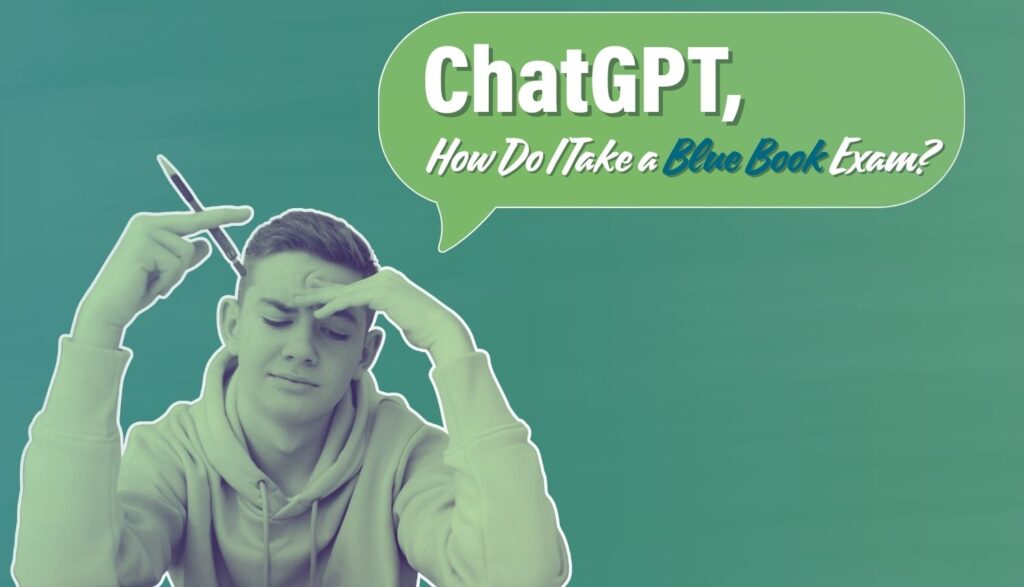The story of teachers versus artificial intelligence comes across like a modern retelling of the legend of John Henry.
In that legend, John Henry, a strong “steel-driving” man, races against a steam-powered machine to build a mile-long railroad tunnel through a mountain using just a hammer. Though Henry eventually succeeds, beating the machine, it is a Pyrrhic victory; he collapses from exhaustion and passes away.
The rise of AI chatbots, spearheaded by ChatGPT, has left teachers scrambling to show the value of digging that metaphorical tunnel without the help of machine—that is, to show how much more beneficial education is when it doesn’t ride on the “hard work” of AI. And as those teachers hammer away to prove their point, they can only watch in dismay as more and more students relax, letting their “steam-powered” chatbots do the work.
For teachers—even when they might prove their point—it nevertheless remains a losing battle. If there is one thing programs like ChatGPT have revealed to them, it’s that the term “artificial intelligence” is becoming a far more accurate term to describe their students, who increasingly rely on AI assistants to do their thinking for them.
Died With a Bluebook in His Hand
Ever since AI assistants exploded onto the scene, teachers and professors have struggled to adapt: The ability to ask an AI chatbot to complete tasks has rendered teacher assignments moot. Some educators use AI detection tools to punish students who use AI (with … limited success). Others hope to mitigate student cheating by integrating AI into their coursework. But some have even gotten caught riding the steam-powered machine themselves.
To be clear, the argument against AI in schools isn’t typically about its use as a tool—that is, for faster research or spellchecking essays. Even John Henry used a hammer rather than his bare hands. The issue lies in students using that tool to do their work for them, to solve the math problem or write the essay. Students can, more easily than ever, get the grade they need without actually learning the material.
That’s why teachers have increasingly switched to oral presentations and in-class handwritten assignments—to help students learn to exercise critical thinking on the topics taught. More recently, The Wall Street Journal even found that, in response to rampant AI-based cheating, purchases of blue books—those blank examination booklets—have increased. Blue-book sales went up “more than 30% at Texas A&M University and nearly 50% at the University of Florida […] Over the past two academic years, blue-book sales at the [University of California, Berkeley] Student Store were up 80%.”
The Affable Calculator
I graduated from college before ChatGPT was released, so I never truly experienced the bot’s educational assistance. But I did grow up in the age of the humble TI graphing calculator. And let me tell you, if you knew the right prompts, that little thing could plot every parabola you’d ever need to graph.
Here’s the thing: Calculators like the TI 84 led many teachers to adopt a “show your work” policy. Getting the correct answer was worth half the points; writing out how you got there was worth the other half.
The point of that policy, as much as I despised it at the time, wasn’t because the math department had it out for us. Rather, our teachers wanted us to understand the concepts being taught rather than just parroting out the answer. It wasn’t that the calculator was inappropriate to use; it was only that it could disguise how much we, as students, actually knew. My teachers wanted to discern that, whether I used the calculator or not, I understood the formulas.
ChatGPT is today’s affable calculator—and not just for math. It can act as a helpful boon for those who genuinely seek knowledge. But it can also become the crutch by which we learn, not the concept, but what buttons to press to get the response we need.
Teachers can mitigate a student’s ability to rely on that resource through blue books and oral examinations. However, the discipline to learn ultimately falls on the student. And it falls on parents to help their children to be mindful of where that line between helpful tool and necessary crutch is.





One Response
Switching to oral presentations and in-class writing is probably the best move. But I don’t think it will improve student-teacher relationships much. While schools punish you for using AI, more and more workplaces punish employees for not using AI. Lots of students are probably thinking “If I’m not allowed to use AI at school, how will I be prepared for the workplace, when I have to use AI?” unless they’re good at teaching themselves.
While schools care a lot (some might say too much) about the process you use to get your results, businesses just want results as fast as possible by any means necessary.
Also, while teachers want their kids to believe that they can do better than AI, their students probably want to ask them “Do you really think so or are you just telling me that because it’s your job?”